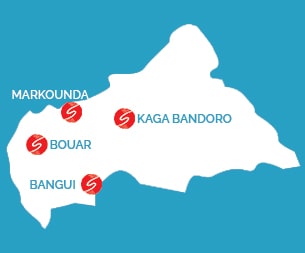The Central African Republic is plagued by extreme insecurity, a destroyed infrastructure, a weak state or non-existent administration. Gaining access to the most vulnerable peoples is particularly challenging, which severely impacts on their ability to recover. SOLIDARITÉS INTERNATIONAL makes every effort to address their emergency needs and to offer early recovery solutions to the population.
EMERGENCY
Since 2013, the Central African Republic has been facing tremendous instability, with ongoing tensions between the government, bilateral forces and armed groups such as Seleka and anti-Balaka. Despite a peace agreement signed in February 2019 between the government of the Central African Republic and the 14 main armed groups in the country, violence and civilians massacres have persistently increased.
Facing terror and insecurity, more than 630,000 Central Africans were displaced within their home country and 632,000 took refuge in neighboring countries – mainly in Cameroon, in the Democratic Republic of Congo and in Chad. That means nearly 1.3 million displaced people and refugees of a total population of 5.9 million inhabitants.
Clearly, such large scale displacements have serious consequences for accessing drinking water and food. Higher population density in some areas increases the strain on available resources.
At the same time, fields are regularly ransacked by armed groups and damaged by the movement of cattle during seasonal migration. Farmers cannot meet the food needs of the local population. As a matter of fact, more than half of the Central African population currently suffers from food insecurity.
Moreover, it is estimated that around 2.8 million Central Africans are in need of humanitarian assistance and roughly ¾ of them have urgent needs (1.9 million people).
Central African Republic
Context and action- 6.1 million inhabitants
- 188th out of 191 countries on the Human Development Index
- 151.014 people helped
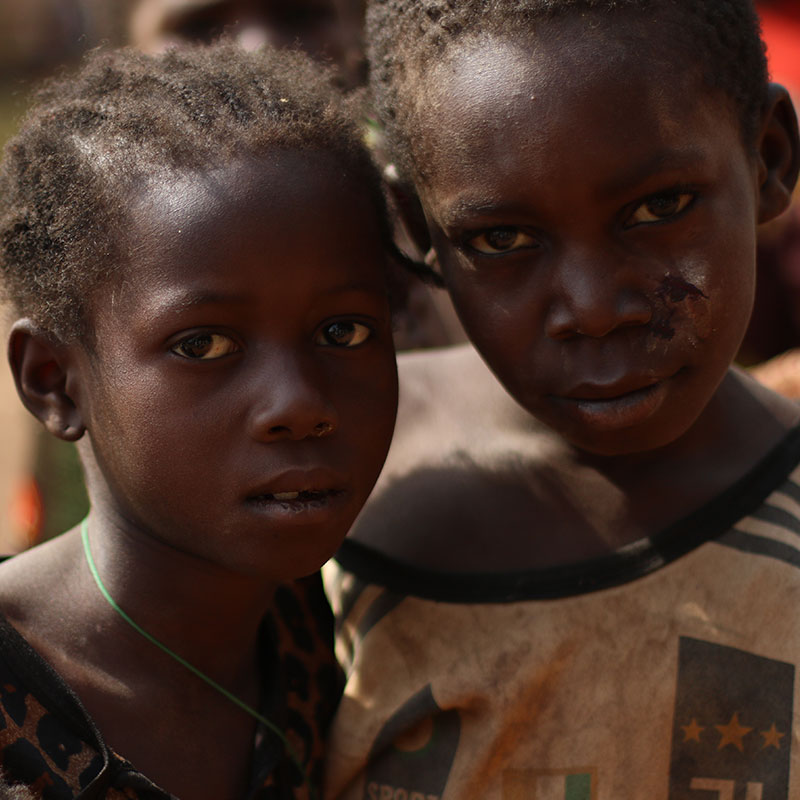
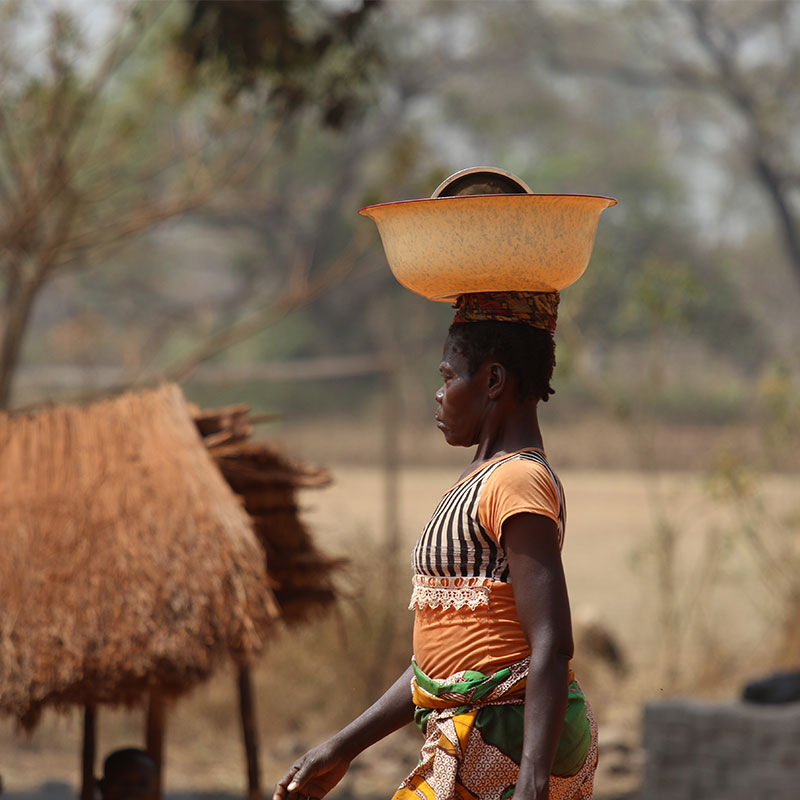
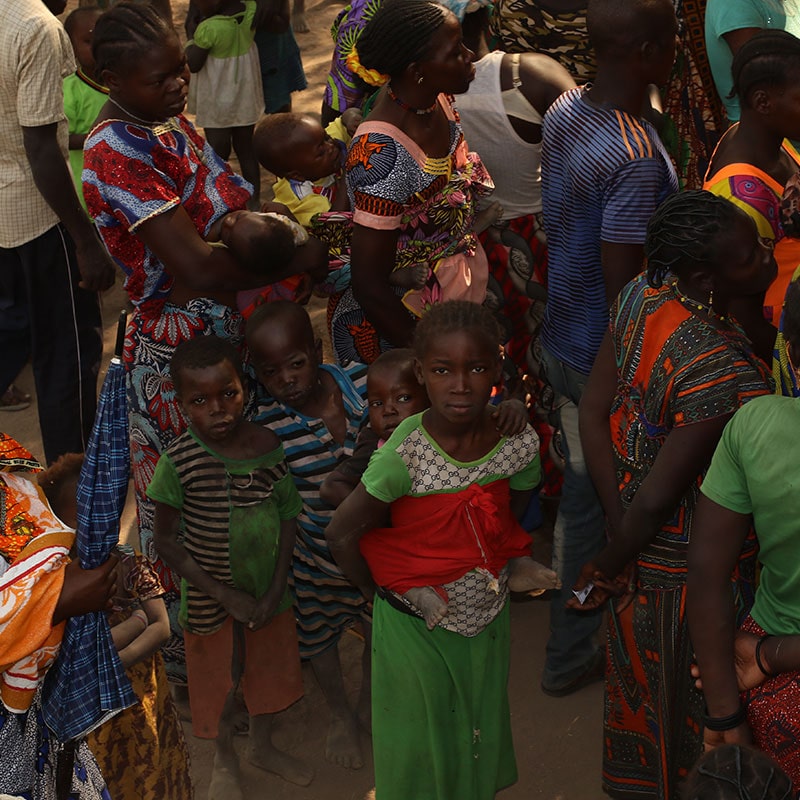
COMPLEXITY of humanitarian access
SOLIDARITÉS INTERNATIONAL has been involved in the country since 2006, during which time teams on the ground have faced numerous challenges.
In terms of safety, the situation is challenging both for humanitarian workers and the civilian populations. They are sometimes victims of attacks as well as demands for ransoms. Justine Muzik Piquemal, in charge of operations in the Central African Republic mentioned “During a trip to build semi-permanent shelters, we were robbed. A car and the teams’ equipment were stolen“.
Our teams also have to obtain permission from armed groups in order to move and take action. Yet, even when that is obtained, there is no long-term guarantee: movements are regularly questioned and what was possible one day may not possible the next. What is of great assistance is the fact that locally our organization is highly respected for its humanitarian experience, insight into the situation and quality interventions.
Our teams are also confronted with numerous logistical issues given that the Central African Republic has a severely damaged infrastructure including destroyed bridges and blocked roads due to very frequent flooding.
These are just some of the challenges we face in implementing our programs. It requires constant monitoring and flexible interventions to meet the needs of people displaced by the attacks.
ROAD MAP: BALANCING EMERGENCY AND LONG TERM
Supporting the most vulnerable people in critical situations, ensuring their food security, preserving their health, strengthening their livelihoods, and preparing them to face other possible shocks: this is the road map that SOLIDARITÉS INTERNATIONAL has put in place in the Central African Republic. Our NGO addresses these critical and crucial situations which require a rapid response, while establishing long-lasting initiatives.
People in Central Africa still suffer from very poor access to water, sanitation and hygiene. Water coverage rate hardly reaches 32% and the sanitation rate is less than 30%. Our teams have been working towards establishing new water points (drilling wells and water systems), restoring damaged structures, as well as creating water management committees to ensure their sustainability. Our campaigns to raise awareness about hygiene, and the efficient use of water points help to cope with the strong pressure coming from the massive population influx. Water storage and transport to farmland are also among the priorities.
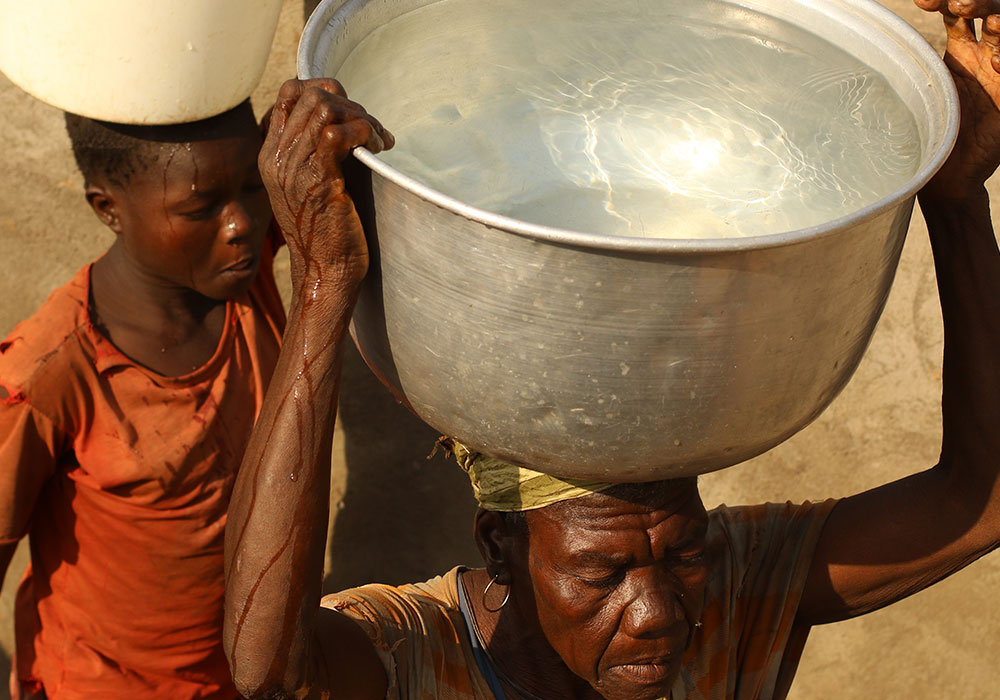
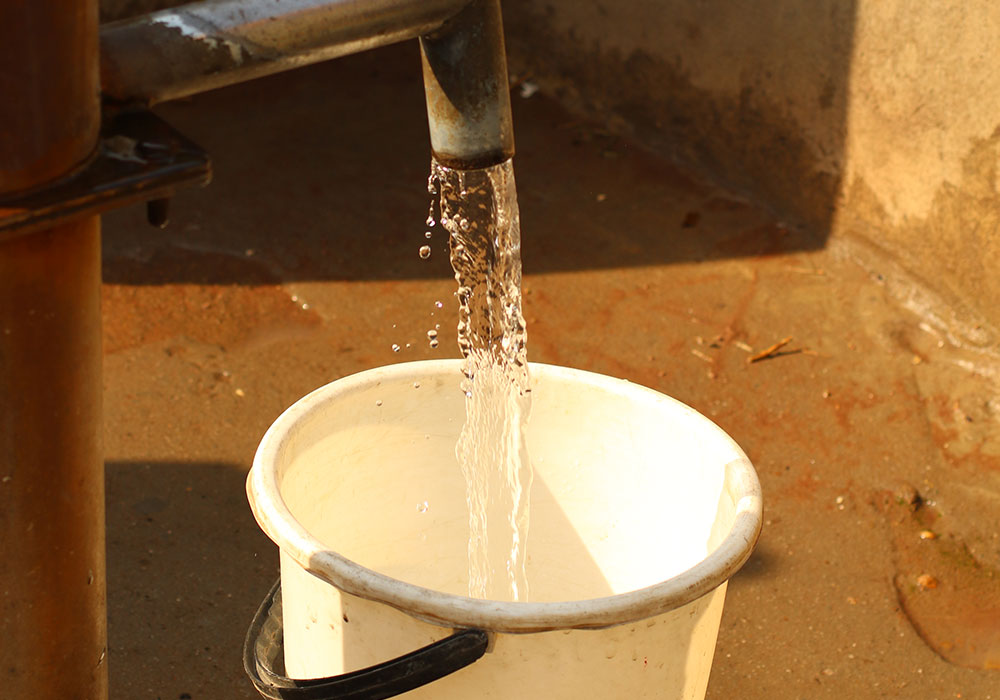
SOLIDARITÉS INTERNATIONAL restores water and sanitation infrastructures, and also creates water management committees to insure their sustainability. Our organization supplies drinkable water to families as well as to farmers by repairing some defective boreholes, ensuring transportation and storage of this water to their land, thus helping to improve food security in the Central African Republic.
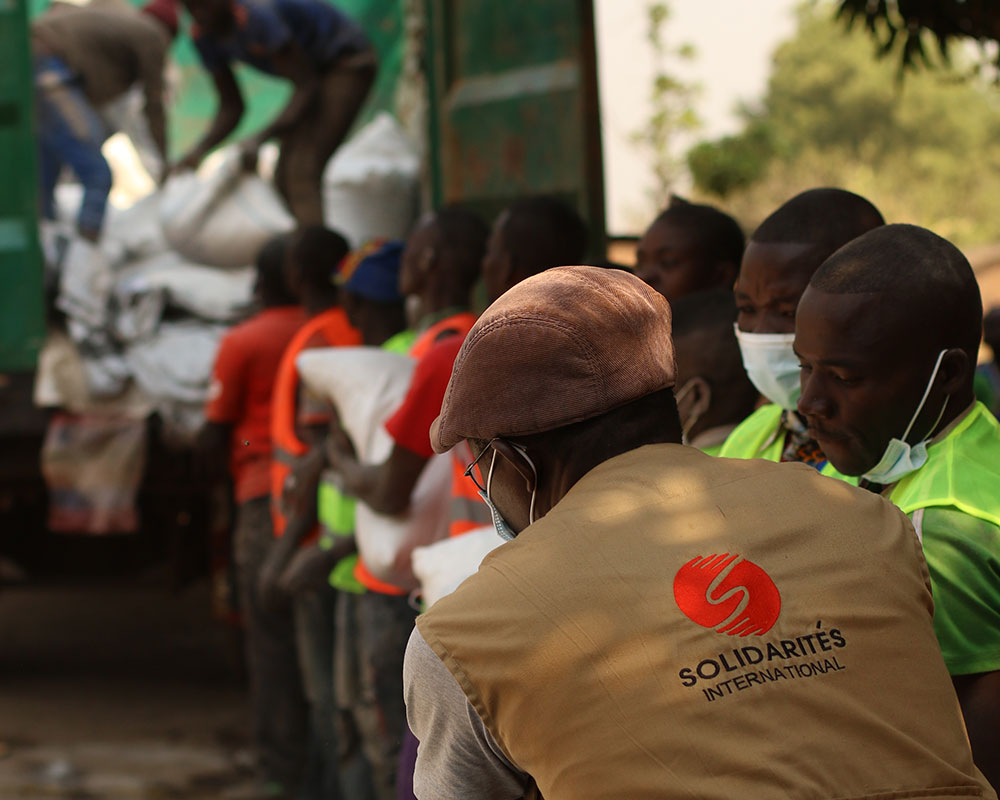
Food safety is another cornerstone of our mission.
“Food kits that are distributed to populations enable them to get 2100 calories a day for a month. These kits consist of rice, peanuts, manioc, as well as oil and salt. Once these kits are finished, we undertake a fresh delivery to enable families to survive through periods of drought “, explains Guillaume Cotillard, Head of Development and Communication at SOLIDARITÉS INTERNATIONAL.
Our teams organize distributions of food kits mainly consisting of corn, manioc and rice. The ongoing conflict in addition to lootings and destruction of fields has had devastating consequences on the existing food resources available. This summer, more than half of the Central African population is likely to suffer from food insecurity.
In addition to the rehabilitation of sustainable water points, long-term actions include supporting agriculture by coordinating vegetable growing in target populations with an emphasis on short-cycle vegetables such as lettuce, onions, amaranth, tomatoes or spinaches.
In the Central African Republic, life is intermingled with violence, devastating floods and epidemics in addition to the COVID-19 pandemic. Supporting processes of resilience contributes to helping these people bounce back from the shocks and trauma that they‘re going through.
SUPPORT OUR ACTIONS IN CENTRAL AFRICAN REPUBLIC
Pictures © SOLIDARITÉS INTERNATIONAL

